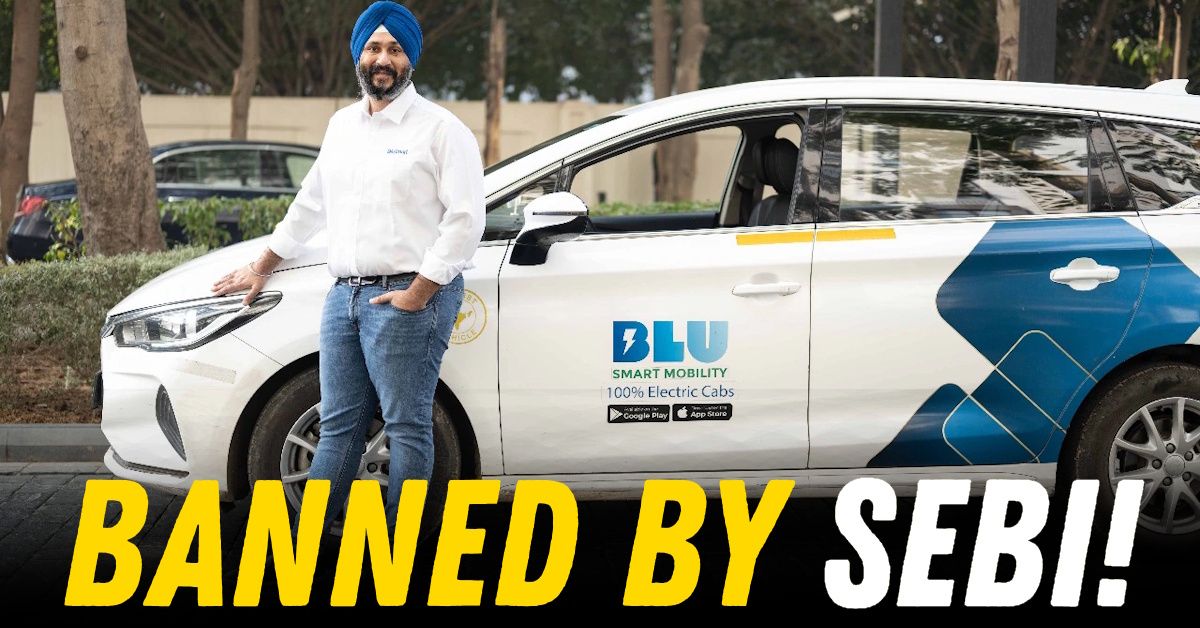BluSmart Electric Cab Start-Up Owner Used Company Money To Buy Rs. 50 Crore Flat: SEBI


For Indian buyers and city commuters who have watched BluSmart’s blue-and-white electric cabs zip across Delhi-NCR and Bengaluru, recent headlines have brought a wave of uncertainty. The promise of clean, reliable, and affordable electric mobility—so central to BluSmart’s appeal—now stands overshadowed by a high-profile regulatory crackdown. The Securities and Exchange Board of India (SEBI) has debarred BluSmart’s founders, Anmol Singh Jaggi and Puneet Singh Jaggi, from accessing the capital markets and holding directorial posts, following revelations of large-scale fund diversion. For anyone considering BluSmart as their go-to ride, or even as a prospective buyer of electric vehicles, these developments are more than just boardroom drama—they strike at the heart of trust and reliability in India’s emerging EV mobility sector.
The SEBI Order and What Triggered It
The story begins with Gensol Engineering, the listed company promoted by the Jaggi brothers, which played a pivotal role in BluSmart’s rapid fleet expansion. Gensol secured loans worth nearly ₹978 crore from government-backed lenders IREDA and Power Finance Corporation between 2021 and 2024. The stated purpose was clear: to purchase 6,400 electric vehicles for leasing to BluSmart, which would then deploy them as cabs across major Indian cities.
However, SEBI’s investigation uncovered a disturbing pattern. Of the funds earmarked for EV purchases, only 4,704 vehicles were actually bought, at a cost of ₹568 crore. The remaining ₹262 crore, SEBI found, was unaccounted for—despite more than a year having passed since the last tranche of financing was received. Instead of being used for EV procurement, large portions of these funds were routed through a web of related entities and ultimately spent on personal luxuries, including a high-end apartment in Gurgaon’s DLF Camellias project. SEBI’s interim order described this as a “complete breakdown of internal controls and corporate governance,” with company funds treated as the promoters’ personal piggybank.
The Fallout: Leadership Shakeup and Market Impact
The regulatory action has had immediate and far-reaching consequences. Both Anmol and Puneet Jaggi have been barred from holding any directorial positions in Gensol or any other listed company, and from participating in the securities market. Gensol’s stock price has plummeted, wiping out investor wealth and triggering a forensic audit of the company’s accounts. For BluSmart, the crisis has sparked an exodus of top executives, including the CEO, CTO, and Chief Business Officer, all of whom resigned in late March. Officially, these departures are attributed to restructuring, but the timing leaves little doubt about the underlying turmoil.
BluSmart’s Business Model Under Strain
For Indian commuters, BluSmart has stood out for its all-electric fleet, predictable fares, and clean, well-maintained vehicles. Unlike Ola and Uber, which rely on driver-owned cars, BluSmart owns and operates its entire fleet, managing everything from charging to maintenance. This asset-heavy model has won it a loyal base among environmentally conscious riders, especially for airport runs and pre-scheduled city trips. However, the very model that set BluSmart apart has also made it vulnerable. The need for constant capital infusion to buy and maintain EVs has left it exposed to funding shocks—precisely what the SEBI action has now triggered.
In the wake of the regulatory crackdown and mounting debt at Gensol, BluSmart is reportedly planning a major pivot. The company is preparing to wind down its own app-based ride-hailing service and transition to operating as a fleet partner for Uber. The shift, starting with 700–800 cars, will be phased over the coming weeks. For many loyal users, this marks the end of the BluSmart experience as they know it.
What This Means for Prospective Riders
For the everyday commuter considering BluSmart as a sustainable transport option, these developments raise pressing questions. Will the service remain as reliable? Will the focus on clean, well-maintained EVs continue under a new Uber partnership? And, crucially, what happens to the customer experience that BluSmart riders have come to value—timely pickups, transparent fares, and a commitment to sustainability?
While BluSmart has publicly assured that operations continue as usual, the reality is more complex. The company’s ability to maintain its unique service standards is now tied to external partners and the outcome of ongoing regulatory and financial investigations. The once-bright vision of a pan-India, all-electric cab network now faces an uncertain future, shaped as much by boardroom decisions as by market forces.
The coming months will reveal whether BluSmart can weather this storm and reinvent itself, or whether its story will serve as a cautionary tale for India’s fast-evolving mobility landscape. For now, riders would do well to stay informed, watch for updates, and weigh their options carefully as the dust settles on one of the country’s most high-profile EV controversies.